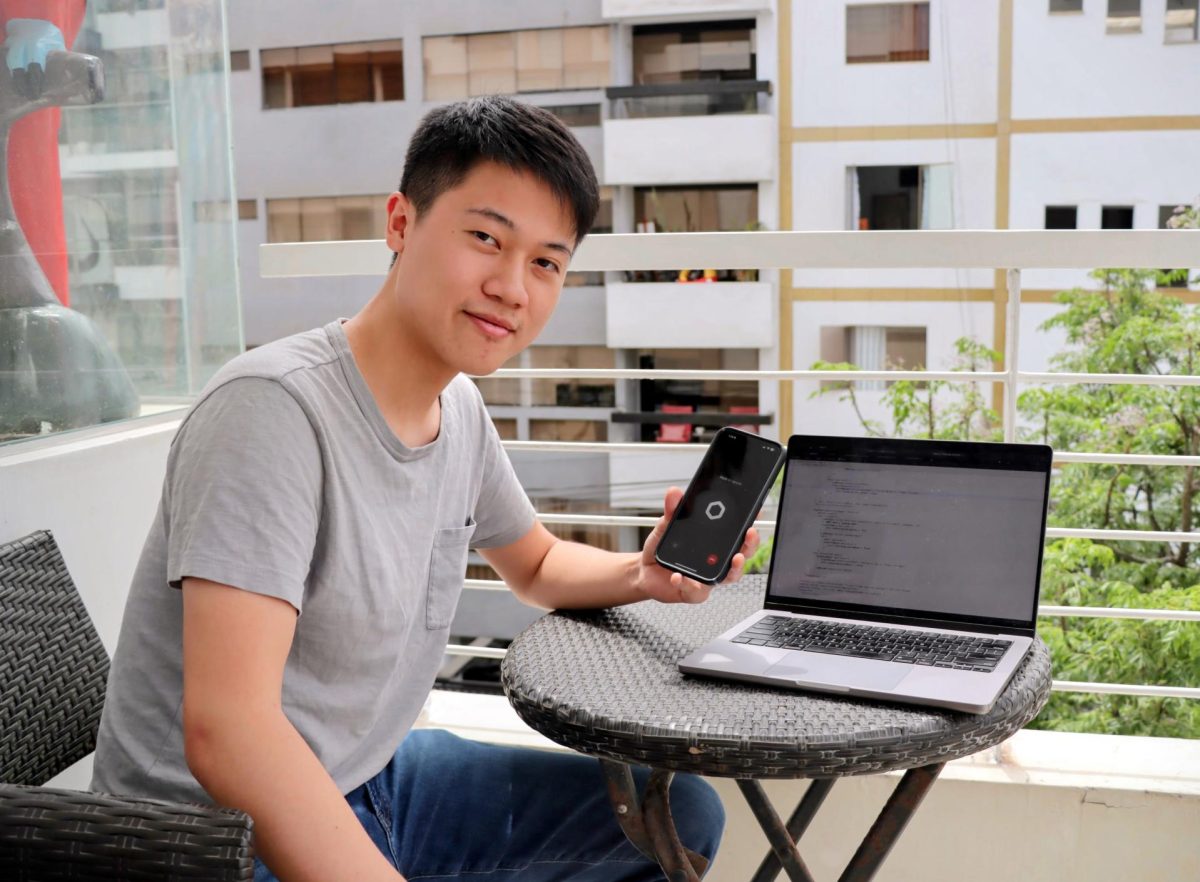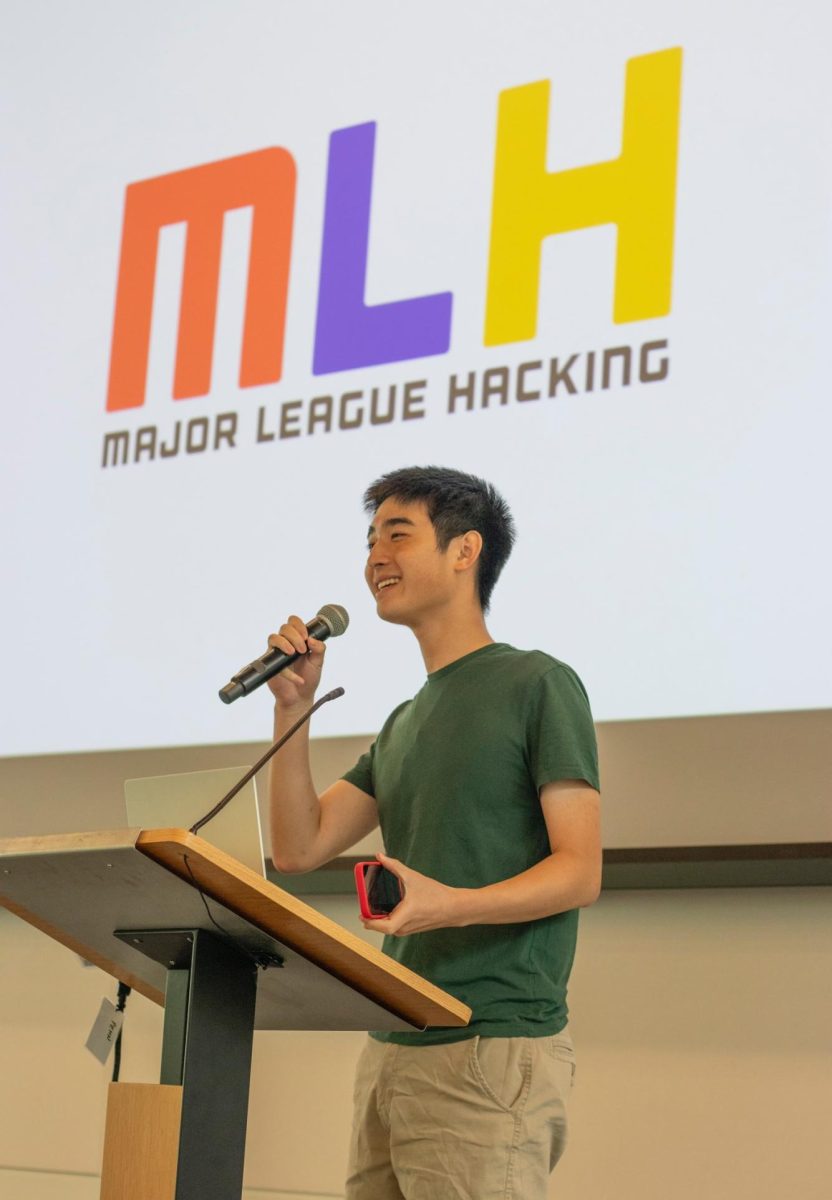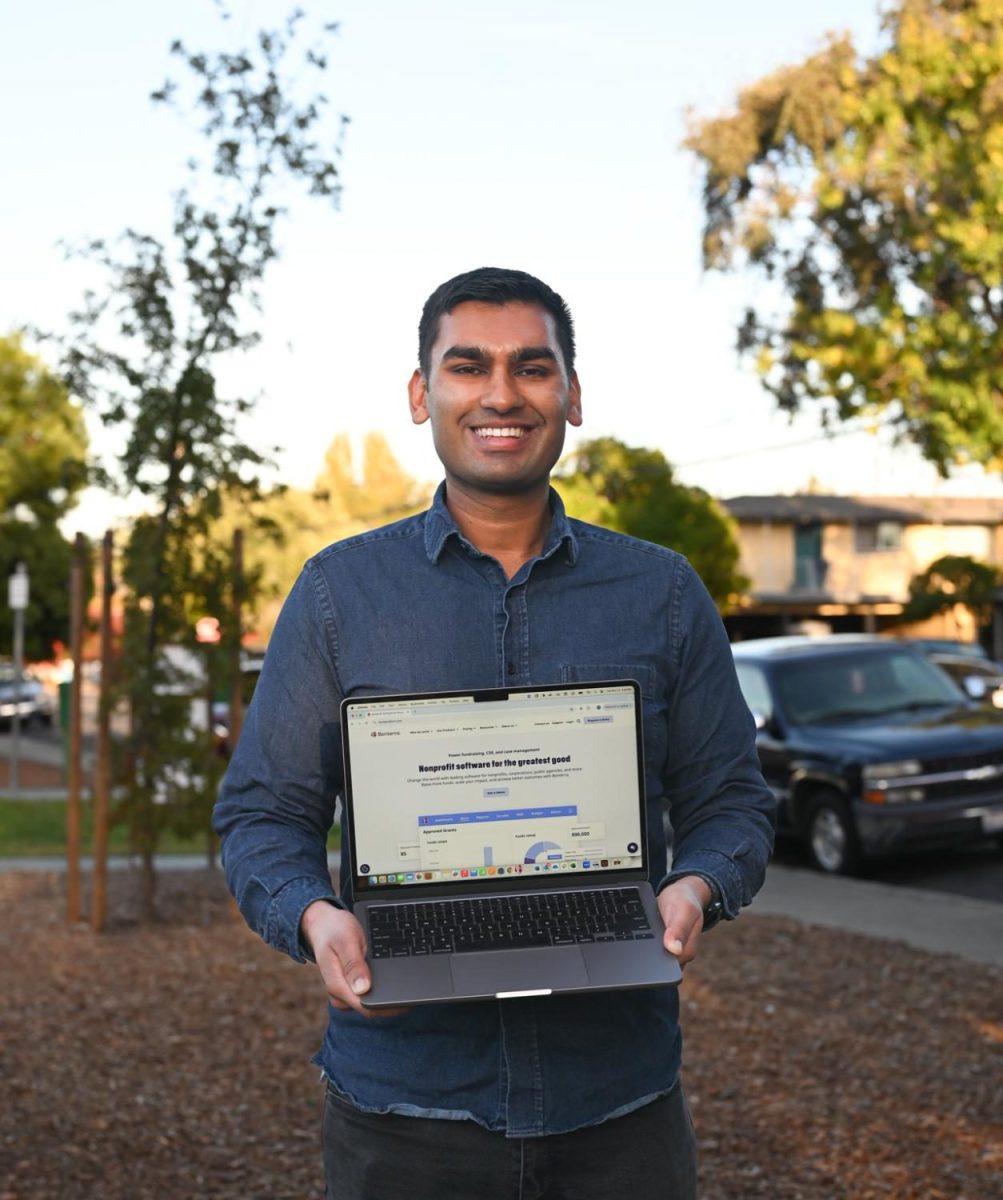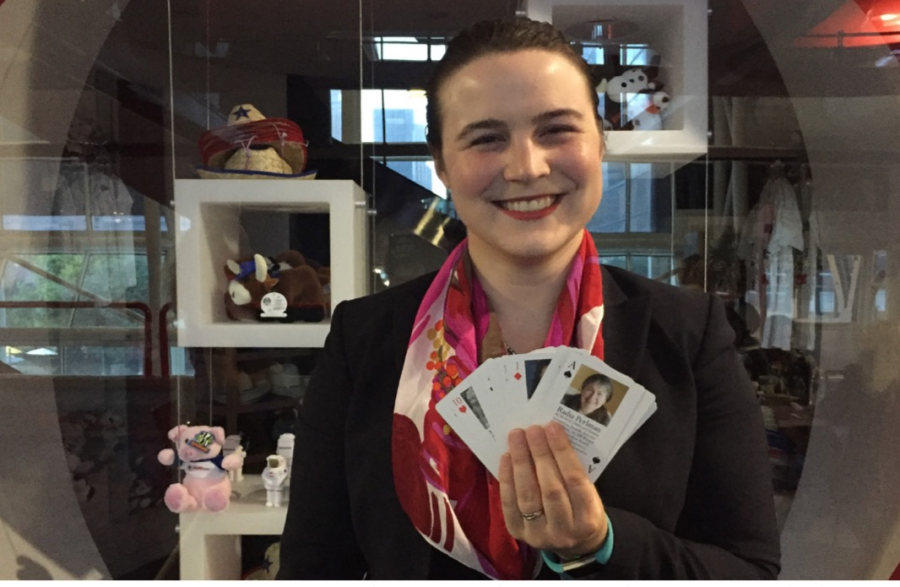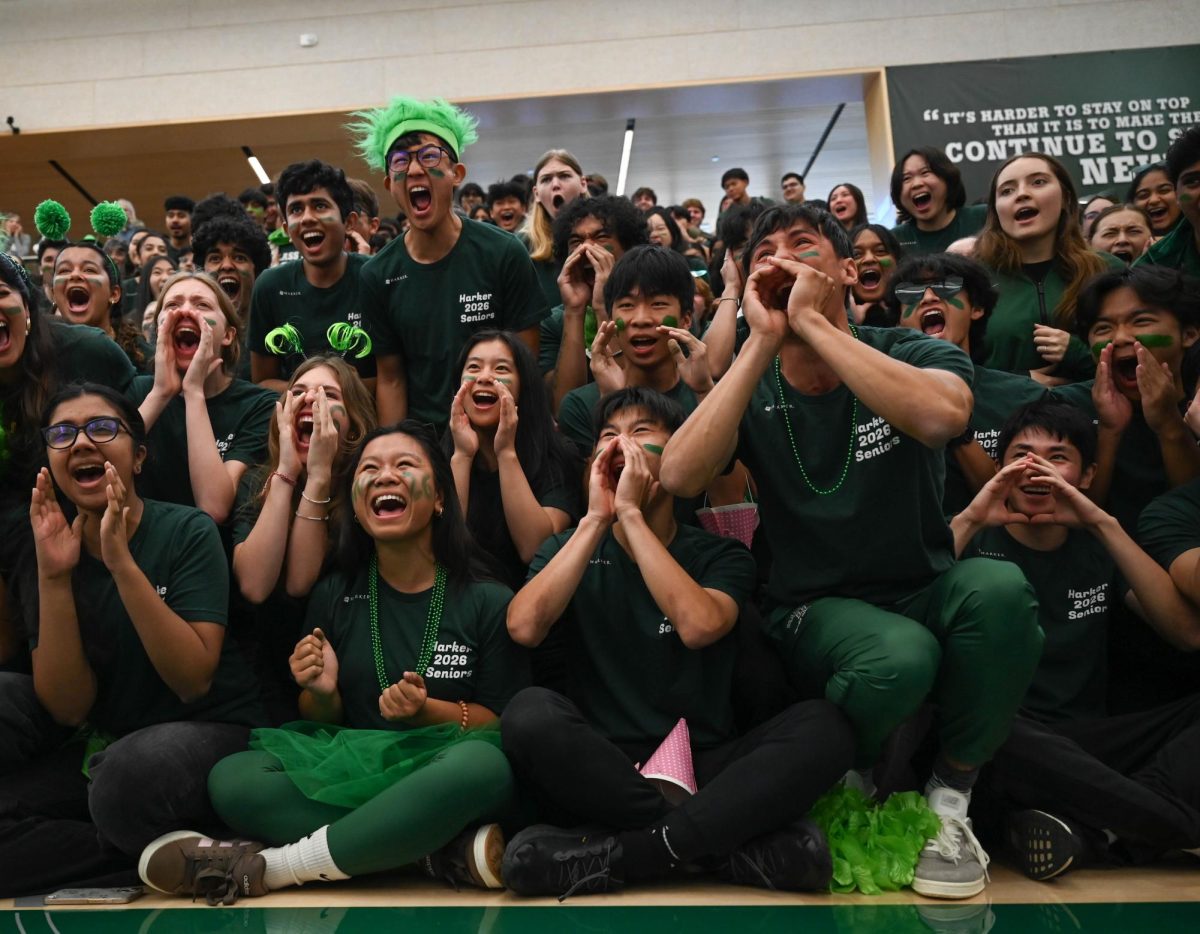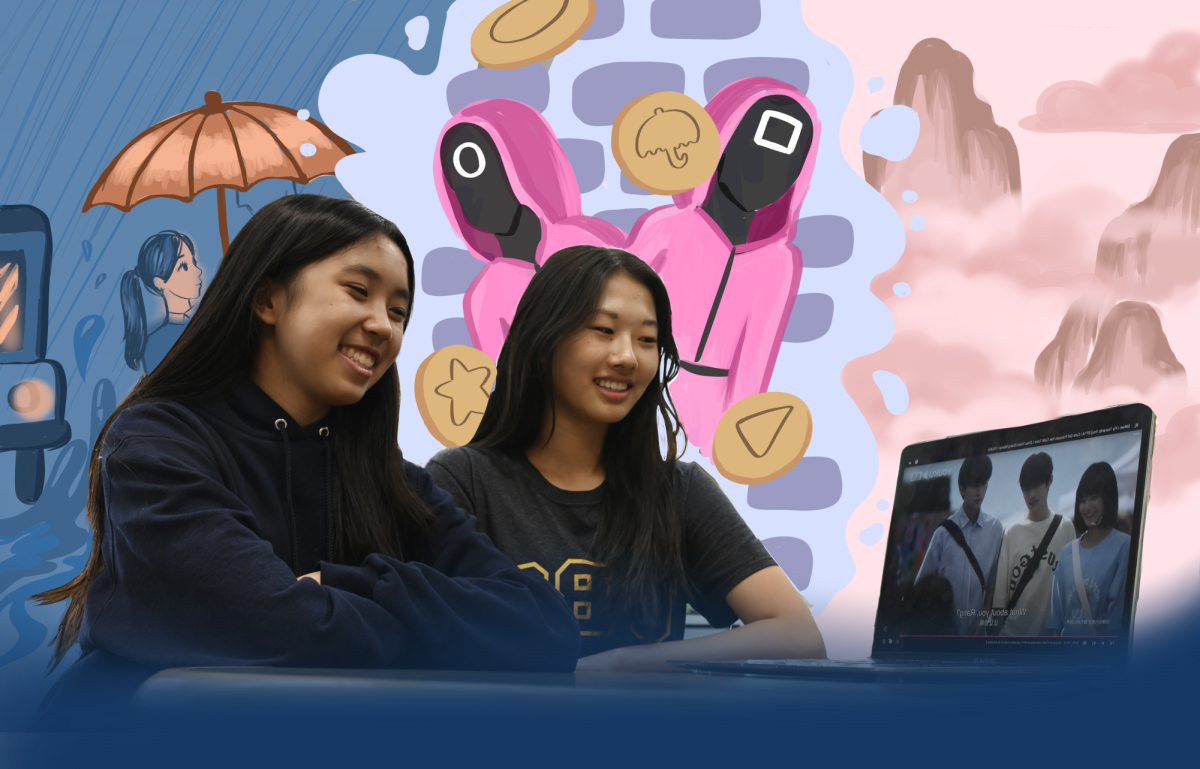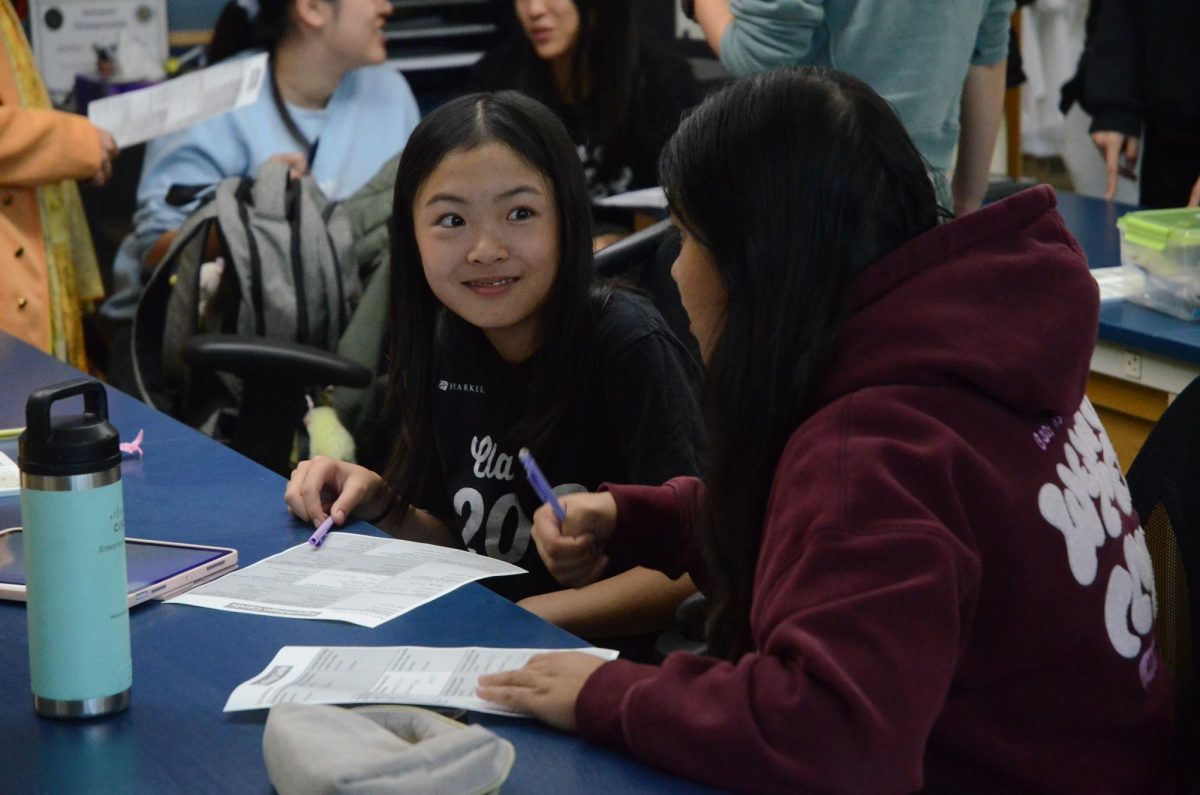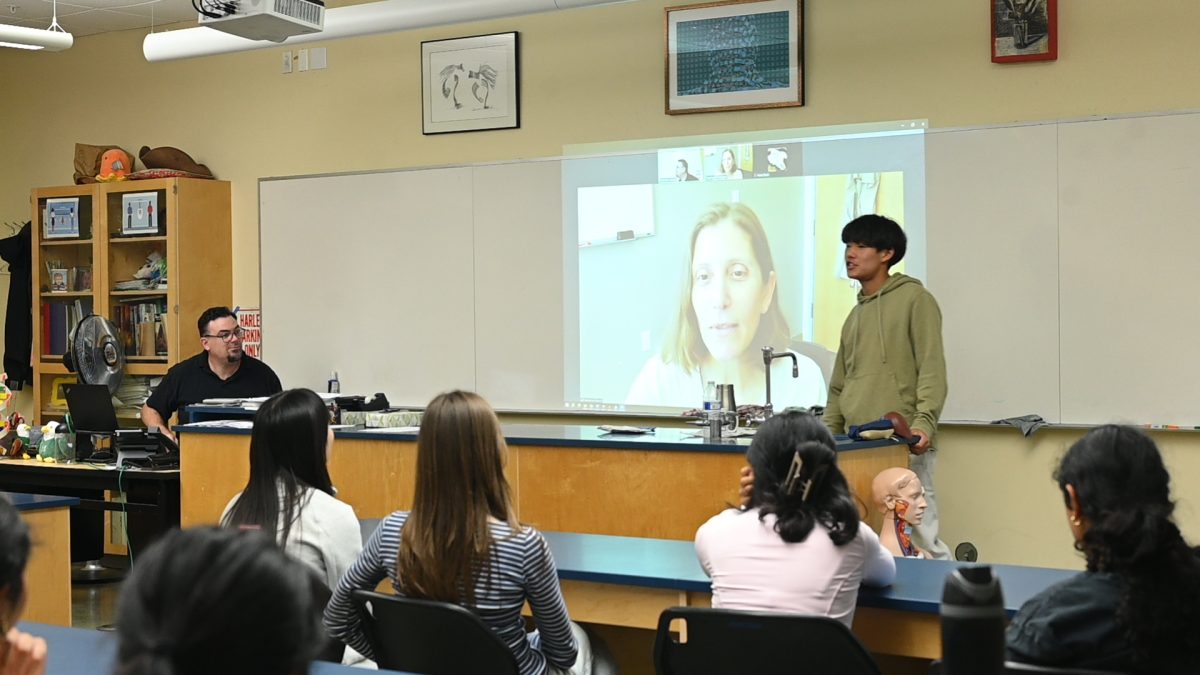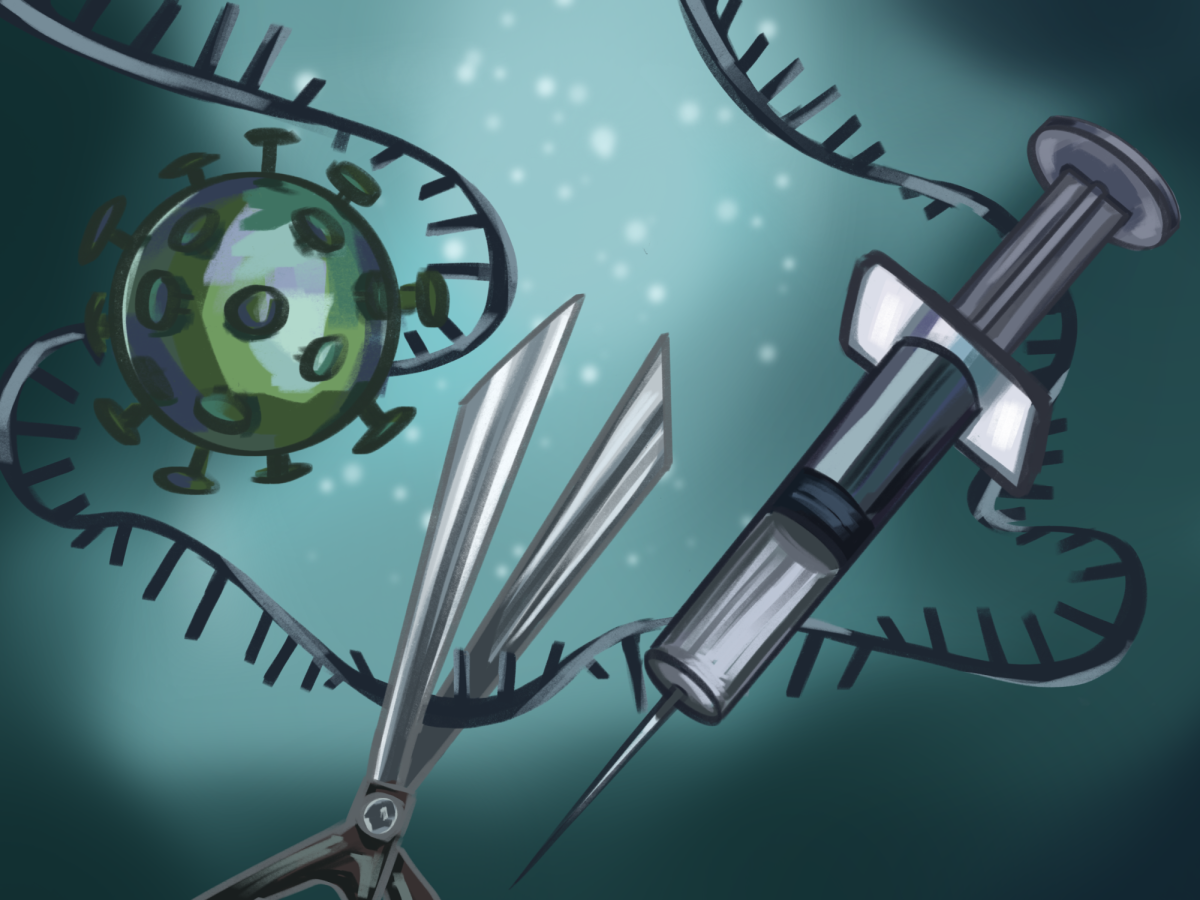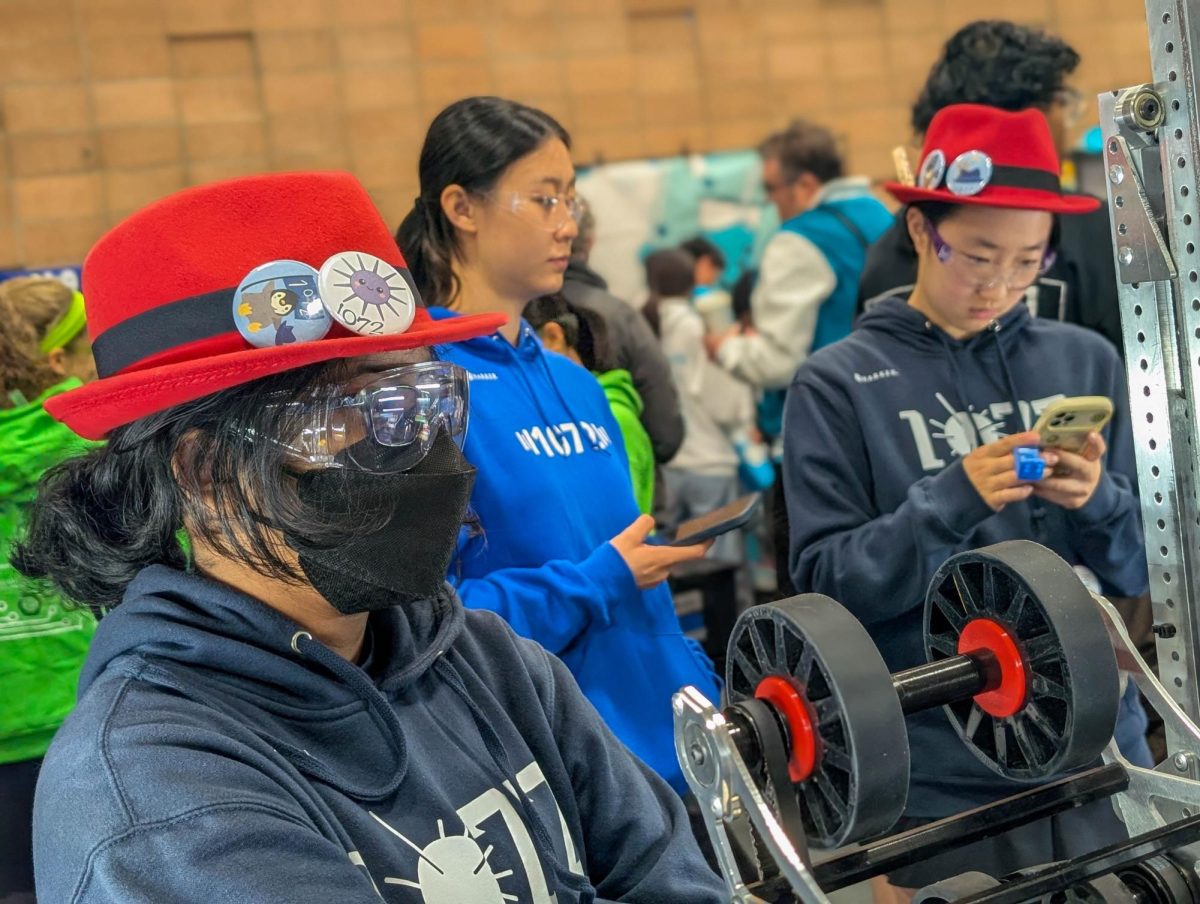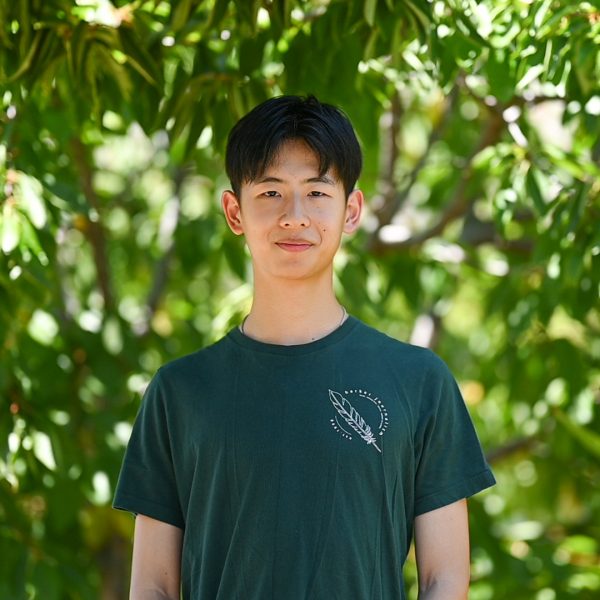Lights, camera, action. Tony Stark pinches and taps his fingertips against thin air. His digital assistant, J.A.R.V.I.S., narrates a flurry of holograms and breaks down Iron Man’s tasks. Accessible, professional and intelligent: modern-day Artificial Intelligence (AI) butlers progressively imitate the futuristic J.A.R.V.I.S. A year after graduating from Harker, alumnus Dawson Chen (‘22) co-founded the virtual butler startup Martin and advanced intelligent virtual assistant standards like Siri and Google Assistant with Martin’s smooth conversations and seamless integrations across websites and platforms.
Chen first ventured into AI when he founded an AI club at Harker’s middle school. Along with the club’s members, he discussed developments in AI from AlphaGo to autonomous driving. In high school, Chen advanced his interest in programming, taking Advanced Topics Computer Science: Neural Networks and leading the student-run app creation club HarkerDev.
“I built a bunch of apps, websites and AI projects, and all those just made me better at launching a product,” Chen said. “I knew how to build a minimally viable product by the time I was in college. I didn’t need to work at a big company or anything to learn how to launch my ideas.”
Chen was particularly interested in Apple’s development of Siri, a digital assistant that lets users control their Apple devices with their voice. Chen noticed how Siri would misunderstand user requests or refuse to access applications outside of Apple’s ecosystem.
“For big companies, it’s really risky to build such an ambitious product,” Chen said. “You’ll have a lot of privacy concerns because they have all sorts of third-party relationships. If they mess up one key action, if they accidentally wipe your calendar, for example, the company is going to be in big trouble and it’s just not worth the risk for them.”
Funded by startup accelerator YCombinator, he coded the first version of an AI that could interact via voice in the summer of 2023, alongside former classmates Harsh Deep (‘22) and Arjun Dixit (‘22). His product, Martin, streamlined routine tasks like taking notes, setting reminders and communicating digitally by the end of the year.
“I am pretty maniacal about productivity hacks,” Chen said. “I used to set up shortcuts on my phone, or I’ll use some hidden features of Siri so that I can make my productivity a little bit more efficient. What we’re doing with Martin is that we’re trying to serve the mission of hacking people’s productivity to be extremely efficient.”
Martin’s rapidly expanding capabilities highlighted the importance of instances where a screen-based interface would be easier for users to navigate, as opposed to a voice-based interface. Chen enhanced Martin with the ability to communicate with and on behalf of a user through text and email.
“I love using voice as an interface if you want to explain something in detail, like my goals for the next week,” Chen said. “But if you want to, say, specify a location for your DoorDash order, certain things you need text and you need a visual interface. That’s much more efficient than using voice.”
To this day, Chen and his team continue to add unique features to the app. In the app’s most recent update, the group integrated Martin with workplace staples like Gmail, Slack, Google Drive and various calendars.
“Five to 10 years later, everyone will have a bunch of different agents in their life, but Martin should be closest to you,” Chen said. “Martin should be the AI that you go to in the morning before work and at night to debrief. We want it to be integrated with all the apps in your routine in order to boost productivity tenfold.”
Martin connects to various platforms and websites with the assistance of recent cutting-edge advancements in large language models (LLMs). Beginning with the invention of word2vec in 2013, LLM technology has grown exponentially, most notably with the first release of ChatGPT in late 2022.
“With all these new AI models, we thought it would be a good opportunity to push the state of the art forward,” Chen said. “We knew that the Siri team at Apple is historically really slow. When a huge technological shift happens, it’s a really good chance for startups to take advantage of it. We want to realize the dream they had for Siri.”
As opposed to big companies who already have loyal customer bases, Chen faces the challenge of advertising his product with a small team. To secure their spot in the AI butler market client, Martin’s team places a heavy emphasis on client loyalty.
“Our philosophy is we are going to work on getting a few hundred really, really happy users before we try to get 10,000 semi-happy users,” Chen said “We’ve spent most of the past year up until May of this year beta testing with a group of a couple thousand users.”
On top of publicity challenges, Dawson’s team battles technical challenges with each new integration and constantly seeks user feedback. YCombinator mentor and entrepreneur Jared Friedman provided Chen with a timelessly relevant analogy about the journey of a startup.
“Startups go into three buckets,” Chen said. “Bucket one is you succeed really quickly with very little pain in the first six months. Bucket two is people who tried to be in bucket one, but failed, and about one or two years later, they give up. Bucket three is people who after one or two years still don’t give up.”
Despite the challenges and risks that emerged after Martin’s founding, Chen continues to follow the path of bucket three, where his key to success lies. From morning syncing to nighttime debriefs, Chen envisions Martin as the go-to productivity booster and personal assistant of the future.
“You should not set your sights too low. It’s very easy in college to blend among some groups of students and try to become the average of them and just take the path that is the most popular,” Chen said. “If you really want to do something ambitious like a startup or be an artist where you’re your own boss and you’re forging your own path, the only way that you don’t achieve it is if you voluntarily give up. If you just keep sticking at it, eventually you’ll get it.”




![LALC Vice President of External Affairs Raeanne Li (11) explains the International Phonetic Alphabet to attendees. "We decided to have more fun topics this year instead of just talking about the same things every year so our older members can also [enjoy],” Raeanne said.](https://harkeraquila.com/wp-content/uploads/2025/10/DSC_4627-1200x795.jpg)


















![“[Building nerf blasters] became this outlet of creativity for me that hasn't been matched by anything else. The process [of] making a build complete to your desire is such a painstakingly difficult process, but I've had to learn from [the skills needed from] soldering to proper painting. There's so many different options for everything, if you think about it, it exists. The best part is [that] if it doesn't exist, you can build it yourself," Ishaan Parate said.](https://harkeraquila.com/wp-content/uploads/2022/08/DSC_8149-900x604.jpg)




![“When I came into high school, I was ready to be a follower. But DECA was a game changer for me. It helped me overcome my fear of public speaking, and it's played such a major role in who I've become today. To be able to successfully lead a chapter of 150 students, an officer team and be one of the upperclassmen I once really admired is something I'm [really] proud of,” Anvitha Tummala ('21) said.](https://harkeraquila.com/wp-content/uploads/2021/07/Screen-Shot-2021-07-25-at-9.50.05-AM-900x594.png)







![“I think getting up in the morning and having a sense of purpose [is exciting]. I think without a certain amount of drive, life is kind of obsolete and mundane, and I think having that every single day is what makes each day unique and kind of makes life exciting,” Neymika Jain (12) said.](https://harkeraquila.com/wp-content/uploads/2017/06/Screen-Shot-2017-06-03-at-4.54.16-PM.png)








![“My slogan is ‘slow feet, don’t eat, and I’m hungry.’ You need to run fast to get where you are–you aren't going to get those championships if you aren't fast,” Angel Cervantes (12) said. “I want to do well in school on my tests and in track and win championships for my team. I live by that, [and] I can do that anywhere: in the classroom or on the field.”](https://harkeraquila.com/wp-content/uploads/2018/06/DSC5146-900x601.jpg)
![“[Volleyball has] taught me how to fall correctly, and another thing it taught is that you don’t have to be the best at something to be good at it. If you just hit the ball in a smart way, then it still scores points and you’re good at it. You could be a background player and still make a much bigger impact on the team than you would think,” Anya Gert (’20) said.](https://harkeraquila.com/wp-content/uploads/2020/06/AnnaGert_JinTuan_HoHPhotoEdited-600x900.jpeg)

![“I'm not nearly there yet, but [my confidence has] definitely been getting better since I was pretty shy and timid coming into Harker my freshman year. I know that there's a lot of people that are really confident in what they do, and I really admire them. Everyone's so driven and that has really pushed me to kind of try to find my own place in high school and be more confident,” Alyssa Huang (’20) said.](https://harkeraquila.com/wp-content/uploads/2020/06/AlyssaHuang_EmilyChen_HoHPhoto-900x749.jpeg)



